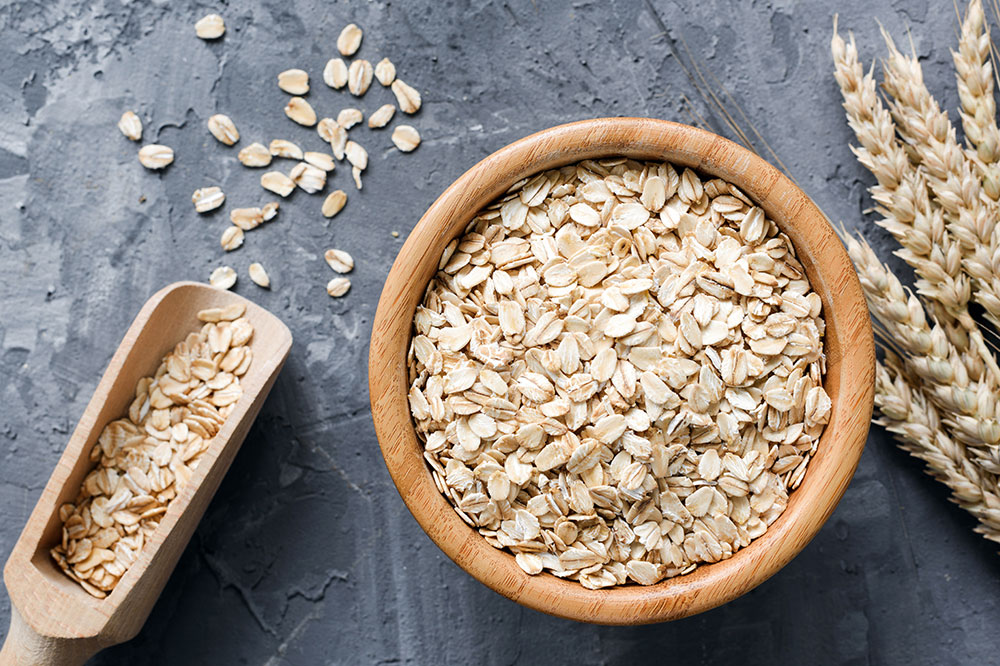Essential Guide: Common Foods High in Cholesterol You Should Limit for Better Heart Health
This comprehensive article explores the top foods high in cholesterol that you should limit or avoid for better heart health. It provides practical tips, healthier alternatives, and lifestyle advice to reduce cardiovascular risks. Emphasizing nutrition awareness and mindful eating, the guide is essential for anyone looking to improve their overall wellness and prevent heart disease through dietary choices.

Essential Guide: Common Foods High in Cholesterol You Should Limit for Better Heart Health
Globally, heart-related health issues continue to pose a significant challenge, with millions affected each year. According to the Centers for Disease Control and Prevention (CDC), nearly 38% of the population suffers from health complications connected to elevated cholesterol levels. High cholesterol, especially low-density lipoprotein (LDL), often progresses silently without immediate symptoms but significantly increases the risk of heart attacks, strokes, and other cardiovascular diseases. Therefore, understanding which foods contribute to high cholesterol is crucial for proactive health management. This comprehensive guide aims to shed light on the top foods high in cholesterol that people should consider limiting or avoiding to promote better heart health and overall wellness.
Incorporating dietary awareness and lifestyle changes can significantly improve health outcomes. Choosing nutrient-rich, heart-friendly foods, engaging in regular physical activity, and maintaining a balanced lifestyle are essential steps toward reducing cardiovascular risks. Below, we explore some of the most common foods that are notorious for elevating cholesterol levels and discuss healthier alternatives and tips for mindful eating.
1. Commercially Prepared Croutons
Croutons are a popular addition to salads and soups, often used to add crunch and flavor. However, many store-bought croutons are made from processed white bread that undergoes frying or baking with generous amounts of butter or oils. This process results in high levels of unhealthy fats, including trans fats and saturated fats, which are detrimental to heart health. These fats contribute to increased levels of LDL cholesterol, commonly known as 'bad' cholesterol, which can clog arteries over time. Additionally, croutons often contain preservatives and artificial flavorings, offering little nutritional benefit and potentially harming long-term health.
To make healthier choices, consider preparing homemade croutons using whole-grain bread baked with olive oil and herbs. This not only reduces unhealthy fats but also adds beneficial nutrients and fiber, supporting cardiovascular health. Always check labels if buying pre-packaged croutons to choose options with minimal additives and lower fat content.
2. Croissants and Pastries
Pastries like croissants are beloved for their flaky texture and rich flavor, primarily derived from high butter content. Made from refined flour and copious amounts of butter or margarine, croissants are rich in saturated fats, trans fats, and refined carbohydrates. Regular consumption of these high-fat baked goods can lead to elevated LDL cholesterol levels, which increase the risk of arterial blockage and cardiovascular disease. They are also calorie-dense, contributing to weight gain and metabolic issues if eaten excessively.
Opt for healthier breakfast options such as whole-grain bread, oatmeal, or fruit. If craving pastries, choose those made with healthier fats, such as avocado or olive oil, and limit portion sizes. Cooking your own baked goods at home allows control over ingredients, helping reduce unhealthy fats and added sugars.
3. Fried Potatoes and Fast Food Fries
French fries and various fried potato dishes are commonly featured in fast-food menus worldwide. These items are usually fried in oils rich in trans fats and saturated fats, significantly contributing to increased LDL cholesterol levels. The deep-frying process also adds excess calories, which can lead to weight gain—another risk factor for heart disease. Additionally, fried potatoes are high in sodium, which can elevate blood pressure and further strain the cardiovascular system.
Instead of traditional fries, consider baking sweet potato fries or roasting potato wedges with olive oil and herbs. These healthier preparations retain flavor while significantly reducing harmful fats and sodium levels. Incorporating more fresh vegetables and whole grains into meals can support heart health and prevent cholesterol buildup.
4. Foods Rich in Processed Sugars
While not directly high in cholesterol, foods with added processed sugars—such as cakes, cookies, candies, sodas, and ice creams—can indirectly impact cholesterol levels and overall heart health. Excessive sugar intake is associated with increased triglycerides, lowered HDL (good cholesterol), and increased LDL cholesterol. Moreover, high sugar consumption contributes to obesity, insulin resistance, and type 2 diabetes, all of which are risk factors for cardiovascular disease.
Reducing intake of sugary foods and beverages is vital for maintaining healthy cholesterol levels. Instead, opt for naturally sweet options like fruits, and use natural sweeteners like honey or maple syrup in moderation. Reading nutrition labels helps identify hidden sugars and make healthier choices.
5. Flavored Granola and Energy Bars
Granolas are often marketed as healthy breakfast options or snacks. While they can be nutritious when unsweetened and minimally processed, many flavored granolas contain added sugars, syrups, and fats that negate their health benefits. These added ingredients can lead to increased cholesterol levels and promote inflammation in the arteries. Despite being made with oats, nuts, and dried fruits, the high sugar content in flavored granola can undermine cardiovascular health if consumed excessively.
To enjoy granola healthily, choose options labeled as low in added sugars or make your own at home using oats, nuts, seeds, and natural sweeteners. Pairing granola with Greek yogurt or fresh fruit adds fiber, protein, and essential nutrients without the excess sugars present in store-bought varieties.
6. Cheeseburgers and High-Fat Fast Food
Cheeseburgers are a staple offering in fast-food chains worldwide. Typically made with high-fat beef patties, processed cheese, and white buns, they are loaded with saturated fats and salt. Consuming cheeseburgers regularly can elevate LDL cholesterol levels, contributing to plaque buildup within arteries. Additionally, the high calorie and sodium content can lead to weight gain and increased blood pressure, both of which elevate cardiovascular risks.
For a healthier alternative, try grilling lean meats or plant-based protein options, using whole-grain buns, and adding vegetables for fiber and nutrients. Limiting fast-food intake altogether and preparing meals at home empowers you to control ingredients, fats, and portion sizes, fostering improved heart health.
Additional Tips for Heart-Healthy Eating
Beyond avoiding or limiting the foods listed above, adopting a heart-healthy lifestyle involves making mindful choices. Incorporate a variety of fruits, vegetables, whole grains, lean proteins, and healthy fats such as olive oil, nuts, and avocados into your diet. Regular physical activity—like brisk walking, cycling, or swimming—helps boost HDL cholesterol and lower LDL cholesterol. Quitting smoking, managing stress, and maintaining a healthy weight are also vital components of cardiovascular health.
Consulting with healthcare professionals for personalized advice, routine screenings, and cholesterol management strategies ensure proactive care. Small, consistent dietary and lifestyle modifications can significantly lower your risk of developing serious heart conditions in the long run.





